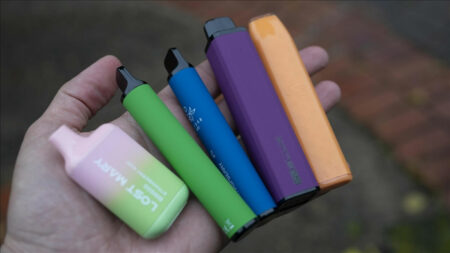Belgium is set to implement new tobacco sale regulations on April 1, 2025, which will prohibit the display of all tobacco products, including cigarettes, cigars, and e-cigarettes, in stores across the country. The move is part of Belgium's tobacco plan, a series of measures launched in 2022 that aims to create a smoke-free generation by 2040.
According to FPS Public Health, sellers who violate the new regulations risk penalties ranging from one month to one year in prison and fines between €2,000 and €800,000. While these penalties may seem severe, FPS Public Health has clarified that they are primarily intended to raise awareness among retailers and demonstrate the government's commitment to strictly enforcing the new regulations.
Newsagents can expect fines for violations, with the severity increasing for repeat offenses. However, FPS Public Health has stated that imprisonment is unlikely. The new regulations also prohibit the sale of tobacco at temporary points of sale, such as markets or festivals.
In addition to the display ban, a new law requiring sellers to ask for the ID of anyone purchasing tobacco products or alcohol who appears to be under the age of 25 will also come into force on April 1, 2025. To assist retailers in complying with this law, Perstablo, the sector federation of tobacco sellers, is launching a smart camera called PASSage that uses artificial intelligence to estimate customers' ages based on their faces.
The PASSage device will give shopkeepers a foothold to ask for an identity card when the light turns red, indicating that the buyer looks younger than 25. The device is not connected to the internet, ensuring that the information is not stored and does not constitute an invasion of privacy. Around 100 night shops in Belgium, including those in Brussels, will be equipped with this technology.
The goal of these new regulations and measures is to reduce the visibility of tobacco products and make smoking less attractive, particularly among young people. The Belgian government hopes that by implementing these changes, they can work towards achieving a smoke-free generation by 2040.

Vape Content Creator | Flavor Reviewer | Lifestyle & Vape Culture Editor
Emily Carter is a vape-focused content creator specializing in flavor reviews, device aesthetics, and lifestyle-oriented vaping content. With hands-on experience testing disposable vapes and pod systems, Emily delivers clear, visually driven insights designed for adult consumers.








